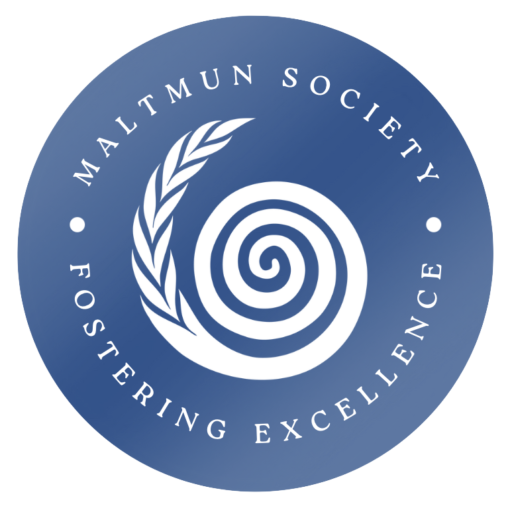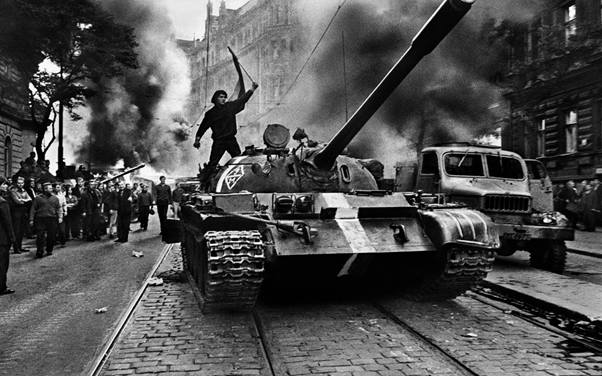Following the second world war, a number of Central and Eastern European countries fell under the Soviet Sphere of Influence. One by one, and over the span of a few years, communist regimes established themselves in Poland, Bulgaria, Romania, Yugoslavia, Hungary and Czechoslovakia, and an iron curtain running from Stettin in the Baltic, to Trieste in the Adriatic, marked the boundary between the liberal, capitalist West and the Communist East.

This article evaluates Communism in the country that originally aimed to be the Bridge between West and East – Czechoslovakia, and how events there had large implications for Communism in general, and was a dress rehearsal for the Perestroika[1] and Glasnost.[2]
Czechoslovakia, a state that emerged in 1918 out of the disintegration of the Austro-Hungarian Empire, was the last standing liberal democracy in Central Europe just before the war. Inheriting most of the Empire’s Industry in Bohemia, and under the “President Liberator,” Tomáš Garrigue Masaryk, the country enjoyed a period of prosperity in the 1920’s with a flourishing of art, literature, generous welfare and a high standard of living. This period of prosperity ended with the Great Depression, as the export driven economy was hit hard by protectionism and lack of demand and as economic fortunes declined, extremist agitation increased. This was especially true of national socialists in the Sudetenland, a border region straddling Bohemia, Moravia inhabited by ethnic Germans. The Munich Agreement, and subsequent occupation was a national trauma, which ended as the country was liberated anew in 1945. A form of democracy, led by a National Front[3] was briefly revived between 1945-1948, with a communist coup establishing a new regime in February 1948. Although initially popular, with some enthusiastic support for the Communist Party, the terror, political trials, repression, forced waves of collectivisation and economic decline that followed, ebbed support in the 1950’s.
The turn of the 60’s saw the repression ease, and an increasing number of reformists climbed to positions of power within the Communist Party. As economic woes continued, ideological restraints were slowly relaxed. This reform movement culminated in the “Prague Spring of 1968,” which tried to envision a new paradigm:
- Transformed Communism or “Communism + Dignity + Freedom”, or as Dubček called it, “Socialism with a human face.”
Shortly after becoming first secretary of the Czechoslovak Communist Party on January 5, 1968, Alexandre Dubček[4] granted the press greater freedom of expression and rehabilitated victims of political purges during the Stalinist era. Later on in April, an Action Plan was adopted, in which sweeping reforms were set in motion: Autonomy for Slovakia, a revised constitution to guarantee civil rights and liberties, and plans for the democratization of the government. Although the Communist Party would maintain the leading role, the party would cease to enforce its decisions through administrative and state power apparatus, but instead try to persuade the nation that its decisions were the correct ones, with the right to opposition now guaranteed. It was an attempt, in the moderate, genuinely popular Dubček’s words, to offer “socialism with a human face.”
This new freedom created a season when hope and optimism were in bloom, and where civil society came into being. Calls for increased democratisation followed the Action Plan, and by June, what was seen as radical in April was seen as too timid. A much more radical document, which later become the subject of Soviet Polemics against Czechoslovakia, the “Two Thousand Word Manifesto,” written by scholars and writers criticised the lack of institutional change in the political system – this liberalisation, or “Prague Spring” as it was called and partial democratisation was wholly dependent on the goodwill of the Communist Party Leadership.
However, the growing freedom of expression, intra-party debate and civil society caused increasing alarm among other Communist Leaders, especially Gomułka in Poland and Ulbricht in East Germany who feared that this softer, humane socialism, would be infectious. In fact it was not long, before demonstrating Polish students starting shouting, “We want a Polish Dubček!” Indeed, already from March, other Communist Leaders began to cajole the Czechoslovak leadership into reversing course, with Gomułka pointedly reminding the delegations present of the crushing of the Hungarian Uprising of 1956. Though the Czechoslovak leadership gave a spirited defence of their actions, stating with excitement that what they were doing was “overwhelmingly progressive and pro-socialist in character” and that once again, millions of people were enthusiastic about the future, pressure mounted, and by August, was extreme.
Then, on the night of the 20th August, the armed forces of the Soviet Union, supported by East German, Polish, Hungarian and Bulgarian units, invaded and occupied the country, and that hopeful, optimistic view, was crushed under the treads of Soviet T-54 tanks.

The invasion, or “fraternal assistance” left the country shellshocked. Dubček and other communist reformers in charge could not countenance that, given that the Communist Party was in power, and the country was still part of the Warsaw Pact, other members of the same military alliance would invade. Czechoslovak society, revitalised after 8 months of reform and debate, valiantly resisted – Massive unarmed protests took place, with street names changed to confuse the invaders, and a brave defence took place outside the Prague radio station. To try to keep broadcasts from East Germany blocked, and the line of Radio Free Europe open, protestors moved city buses around the building and set them ablaze. When Soviet tanks rammed the fortifications, several set themselves on fire. Others pleaded with soldiers, or poured scorned on them, labelling them fascists.

It is still unclear how many people died during the invasion, with estimates ranging from 80 to several hundred. But in the months that followed, as scores of people were arrested and thousands sent for “re-education” under a program of “normalization,” hope was replaced by fear and defiance with dejected resignation. That despair was captured most drastically on January 16th, 1969, when Jan Palach, a student at Charles University in Prague, went to Wenceslas Square and set himself on fire in protest — a moment captured on film. He died several days later, with tens of thousands attending his funeral.
With the Prague Spring crushed, what followed was for Czechoslovakia, a period of “Normalisation.” An attempt was made to turn the clock on newfound freedoms, and compensate this with artificially raised living standards. With consequences for dissent harsh, and hope for reform crushed, most people retreated into their private lives and opted for superficial compliance to the new regime. The few who dissented, choosing to “live in truth,” most notably the playwright Václav Havel, would later play vital roles in the Velvet Revolution 21 years later.
The events of 68’ had important implications for communism in the years that followed. For communists who had spearheaded reforms, the invasion was a debacle. Belief that the system could be altered or improved, was crushed. Communist parties active in Western Europe, especially in Italy, reformed and shifted to Eurocommunism, moving away from following Moscow’s ideological line. Meanwhile in the rest of the Eastern Bloc, the line had been drawn and reform was held back for 20 years. Most importantly, the Prague Spring showed that intra-party developments could produce significant change, which begged the question: What would happen should reform gather pace within the Soviet Bloc? What would, or could, stop a “Moscow Spring?”
Bibliography
[1] Openness, Reformation,
[2] Transparency
[3] Union of permitted parties – eg: Communists, Social Democrats
[4] https://www.britannica.com/biography/Alexander-Dubcek

